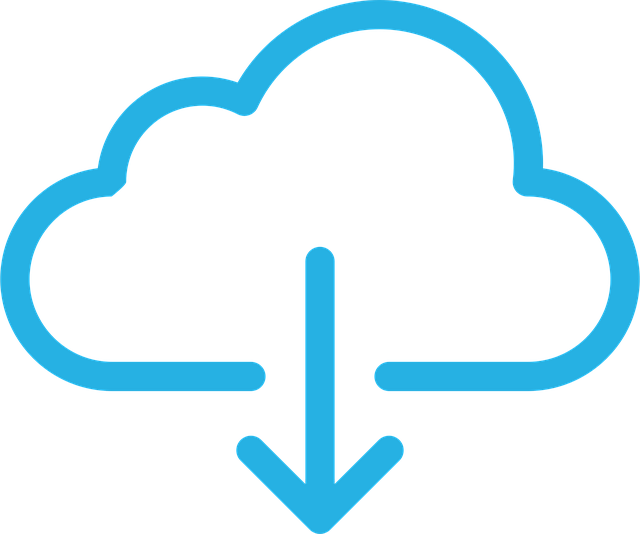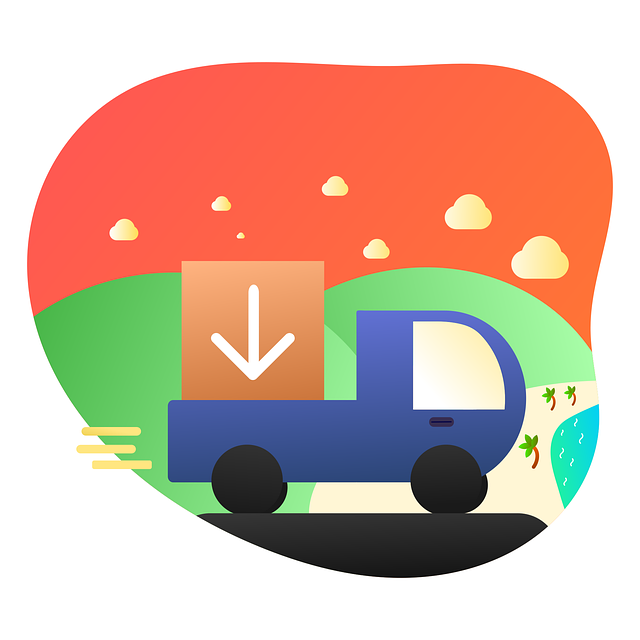download
Download: Unlocking Digital Access and Transforming Global Connections
Introduction
In the digital age, the term “download” has become an integral part of our daily lives, enabling us to access and acquire vast amounts of data, software, media, and information at unprecedented speeds. This article aims to take a comprehensive journey through the world of downloads, exploring its definition, global impact, economic implications, technological advancements, regulatory landscape, challenges, successful case studies, and future prospects. By delving into these aspects, we will uncover the significance of downloads in shaping modern connectivity and digital experiences worldwide.
Understanding Downloads: Unraveling the Basics
Definition:
A download refers to the process of obtaining data or content from a remote server over the internet and storing it on a local device such as a computer, smartphone, or tablet. This transfer of files or software applications allows users to access and utilize digital resources without requiring constant connection to the internet.
Core Components:
- Server: The hosting platform that stores the data or content to be downloaded.
- Client (Local Device): The user’s device from which they initiate the download request.
- Internet Connection: A stable connection is essential for seamless transfer of data between the server and the client.
- Download Client Software (e.g., web browsers, specialized apps): Tools that facilitate the download process by managing file requests and handling data transfer.
Historical Context:
The concept of downloading has evolved since the early days of the internet. Initially, users accessed content through dial-up connections, making downloads slow and cumbersome. With the advent of broadband internet in the late 1990s, downloads became faster and more efficient. The rise of file-sharing networks and peer-to-peer (P2P) systems further popularized the idea of sharing digital resources directly among users. Today, downloads play a pivotal role in how we consume media, manage our devices, and interact with online services.
Significance:
Downloads democratize access to information and entertainment, allowing users worldwide to obtain digital content regardless of geographical barriers. They have revolutionized software distribution, making applications readily available for download, which has significant economic implications. Moreover, downloads enable the efficient transfer of data, facilitating collaboration, research, and knowledge sharing on a global scale.
Global Impact and Trends: A Digital Revolution in Motion
International Influence:
Downloads have a profound impact on various regions worldwide, contributing to digital literacy, economic growth, and cultural exchange. In developed countries, high-speed internet access and robust download infrastructure support a thriving digital economy. Emerging markets are witnessing rapid adoption of downloads as affordable internet plans and mobile data become more accessible, bridging the digital divide.
Regional Trends:
-
North America and Europe: These regions have advanced download ecosystems, with well-established content delivery networks (CDNs) and robust legal frameworks governing digital rights management. Streaming services and online entertainment platforms dominate the market, with significant investments in high-quality content production.
-
Asia Pacific: The region’s massive population base drives rapid growth in mobile downloads, particularly in countries like China and India. The rise of local tech giants and innovative start-ups has led to unique download experiences tailored to regional preferences and languages.
-
Middle East and Africa: While these regions face challenges related to infrastructure and internet penetration, downloads are fostering digital transformation. Mobile money services and m-commerce platforms thrive through downloads, providing financial inclusion and e-commerce opportunities in underserved areas.
Statistical Insights:
- According to a 2022 report by Statista, global internet users reached 4.9 billion in 2021, with mobile internet usage accounting for 73.5% of the total. This widespread connectivity fuels the demand for downloads.
- The download market is projected to reach USD 285.6 billion by 2027, growing at a CAGR of 12.8% from 2020 to 2027 (Source: Market Research Future).
- Mobile app downloads reached 204 billion in 2021, indicating the massive scale of digital consumption (App Annie).
Economic Considerations: A Digital Marketplace in Flux
Market Dynamics:
The download economy is a thriving marketplace that encompasses software applications, media content, games, e-books, and various digital services. The global online software market, a significant segment of this ecosystem, is expected to reach USD 467.2 billion by 2026 (Grand View Research). Mobile app downloads contribute substantially to this growth, driven by the widespread adoption of smartphones.
Investment Patterns:
- Venture Capital (VC) Investment: VC firms actively invest in digital content creators, streaming platforms, and innovative download technologies, fostering innovation and market growth.
- Acquisitions and Mergers: Larger tech companies acquire startups to expand their download offerings, integrate new technologies, and gain a competitive edge.
- Public Offerings: Successful download-based companies go public, attracting significant investment from institutions and retail investors.
Economic Impact:
- Job Creation: The digital economy, including downloads, has created numerous jobs across various sectors, such as software development, content creation, marketing, and customer support.
- Revenue Generation: Downloads contribute to the revenue streams of content creators, developers, and service providers, supporting a diverse range of business models.
- Digital Export: Countries with robust download industries can export digital content and services, enhancing their trade balances.
Technological Advancements: Shaping the Future of Downloads
High-Speed Internet and 5G:
The rollout of high-speed internet connections and the advent of 5G technology have significantly improved download speeds, enabling faster file transfers and smoother streaming experiences. These advancements are crucial for downloading large media files, such as high-definition videos and immersive augmented reality (AR) content.
Cloud Computing and Edge Computing:
- Cloud Storage: Cloud-based storage services like Google Drive and Dropbox facilitate seamless downloads by allowing users to access files from anywhere, ensuring data availability and synchronization.
- Edge Computing: This technology brings computation closer to the user, reducing latency for real-time downloads, especially in applications requiring quick response times, such as online gaming and virtual reality (VR).
Artificial Intelligence (AI) and Machine Learning:
AI-powered download systems can personalize content recommendations, optimize file delivery, and enhance security by detecting and blocking malicious software. AI-driven search algorithms improve the discovery of relevant downloads, enhancing user experiences.
Blockchain Technology:
Blockchain offers secure and transparent download options, ensuring digital rights management and providing users with proof of ownership for their downloaded assets. This technology can revolutionize music and media downloads, addressing piracy concerns.
Policy and Regulation: Navigating Legal Waters
Intellectual Property Rights (IPR):
Download services must adhere to IPR laws, protecting copyright holders’ digital content from unauthorized distribution. Digital rights management (DRM) technologies are employed to control access and usage rights, ensuring fair compensation for creators.
Data Privacy and Security:
- GDPR (General Data Protection Regulation): In Europe, the GDPR sets strict guidelines for data privacy, impacting download services that collect user information. Compliance is mandatory to avoid substantial fines.
- CCPA (California Consumer Privacy Act): Similar regulations in California, USA, give consumers more control over their personal data and impose obligations on businesses handling such data, including download platforms.
- Data Encryption: To safeguard downloaded content, many services employ encryption, ensuring that data is secure during transfer and storage.
Net Neutrality:
The concept of net neutrality advocates for equal treatment of internet traffic, regardless of the service accessed. This principle influences download policies as it aims to prevent internet service providers (ISPs) from slowing down or favoring specific downloads based on content or service type.
Challenges and Criticisms: Overcoming Obstacles
Security Concerns:
Downloads can expose users to malware, viruses, and phishing attempts if not managed properly. Untrusted sources or pirated software are significant risks, leading to potential data breaches and system instability.
Solution:
- Implementing robust security measures, such as antivirus software and firewall configurations, is essential for user protection.
- Developers should adopt secure coding practices and regular security audits to identify vulnerabilities.
- Education campaigns can raise awareness among users about safe download practices.
Digital Divide and Accessibility:
Despite the global reach of downloads, the digital divide persists, affecting individuals in rural areas or low-income communities with limited access to high-speed internet or affordable devices. This disparity hinders equal participation in the digital economy.
Solution Strategies:
- Governments and ISPs can invest in infrastructure development to improve internet connectivity nationwide.
- Subsidies and affordable device programs can make technology more accessible to underserved communities.
- Digital literacy initiatives can empower individuals to utilize download services effectively.
Data Monopolies and Privacy Issues:
Large tech companies with dominant market positions may collect excessive user data, leading to privacy concerns and potential data misuse. This issue has sparked debates about regulatory interventions to protect consumer rights.
Addressing the Challenge:
- Enhanced data privacy regulations, like those mentioned earlier, aim to mitigate these concerns.
- Promoting competition in the digital market can prevent monopolies and encourage more user-centric practices.
- Users should be given control over their data through transparent consent mechanisms and data portability options.
Case Studies: Successful Downloads in Action
Netflix:
Netflix, a global streaming service, has revolutionized the way people consume media. Its download feature allows users to watch content offline, ensuring accessibility even without an internet connection. This capability has been instrumental in expanding Netflix’s reach, especially in regions with inconsistent internet connectivity.
Airbnb (Downloadable Experiences):
Airbnb offers more than just accommodation; it provides downloadable travel experiences. Users can purchase guided tours, cooking classes, or unique activities as digital downloads, enabling them to access local experiences even after their trip. This innovative approach enhances the overall travel experience and creates new business opportunities for hosts.
Spotify (Music Streaming and Downloading):
Spotify has transformed the music industry by offering on-demand streaming and download capabilities. Users can access millions of songs and create personalized playlists, with the option to download content for offline listening. This model has democratized music consumption, providing users with flexibility and convenience.
Future Prospects: Emerging Trends and Strategic Considerations
Growth Areas:
- AR/VR Downloads: As AR and VR technologies gain traction, downloads of immersive content will be crucial for creating engaging experiences. High-quality 3D models, textures, and environments will be heavily downloaded for these applications.
- Smart Home Automation: The Internet of Things (IoT) is expected to drive downloads of automation software and firmware updates, enabling users to control smart devices remotely.
- Personalized Content Curation: AI-driven download services will offer personalized content recommendations, catering to individual preferences and behaviors.
Emerging Trends:
- Downloadable Blockchain Games: Blockchain technology combined with NFTs (Non-Fungible Tokens) is set to disrupt the gaming industry. Players can own digital assets as NFTs and download games that allow them to trade and monetize these assets.
- Decentralized Content Delivery Networks: Peer-to-peer content delivery networks (P2P CDNs) could gain popularity, enabling users to share and download content directly from one another, potentially reducing server load.
- 5G-Enabled Downloads: With 5G networks rolling out globally, downloads will become even faster and more efficient, supporting real-time applications like cloud gaming and high-definition video conferencing.
Strategic Considerations:
- Download service providers should focus on enhancing user experiences through personalization, seamless integration with other platforms, and innovative content delivery methods.
- Investing in security infrastructure and data privacy measures is essential to build trust among users and comply with regulations.
- Exploring partnerships with ISPs and device manufacturers can improve download speeds and accessibility.
- Adapting business models to accommodate new technologies, such as blockchain and IoT, will be crucial for staying competitive in the future.
Conclusion: Connecting the Digital World
Downloads have emerged as a cornerstone of our digital landscape, enabling access to a vast array of information, entertainment, and services worldwide. From streaming media to software updates, downloads power our daily interactions and drive economic growth. As technology advances, downloads will continue to evolve, shaping how we consume content and interact with online platforms.
Addressing challenges related to security, privacy, and accessibility is vital to ensure a sustainable and inclusive digital future. Governments, businesses, and developers must collaborate to create robust policy frameworks, invest in infrastructure, and promote innovative solutions. The global impact of downloads highlights the potential for positive change, fostering connections, and empowering individuals worldwide.
FAQ: Answering Common Queries
Q: How do I know if a download is safe?
A: Reputable sources and verified platforms typically have security measures in place to protect users. Look for secure connections (HTTPS), user reviews, and trust seals from recognized security organizations when downloading software or content.
Q: Can downloads replace physical media entirely?
A: While downloads offer convenience, physical media still has its merits. Some individuals prefer owning physical copies for backup purposes, collection value, and the tangible experience they provide. A balance between digital and physical formats is often preferred.
Q: How do downloads impact internet bandwidth usage?
A: Downloads contribute to internet traffic but can be optimized through various means, such as peer-to-peer downloading, content delivery networks (CDNs), and efficient data compression techniques. Responsible download practices, including managing concurrent downloads, can help reduce bandwidth strain.
Q: Are there any legal implications of sharing downloaded files?
A: Sharing copyrighted material without permission is illegal in many jurisdictions and may result in copyright infringement claims or criminal penalties. It’s essential to respect intellectual property rights and use downloads responsibly, adhering to fair use guidelines.
Q: How can I ensure my downloaded content remains secure?
A: Utilize antivirus software, keep your operating system and applications updated, and enable regular security scans. For sensitive data, consider encryption tools to protect your files from unauthorized access.









